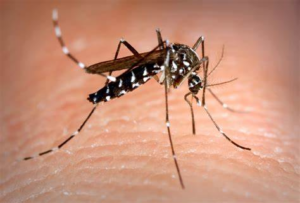Malaria Warning Signs: What To Look Out For
3 min read
Overview
A mosquito-borne parasitic disease. This causes high fever, severe chills and sweating.
Symptoms
If you or someone you know is exhibiting symptoms of a Malaria, seek medical attention immediately
Common symptoms include:
- High fever
- Shaking chills that can range from moderate to severe
- Profuse sweating
- Headache
- Abdominal pain
- Muscle pain
- Nausea
- Vomiting
- Diarrhea
- Anemia
- Deep breathing and respiratory distress
- Clinical jaundice and evidence of vital organ dysfunction
- Impaired consciousness
- Bloody stools
- Convulsions
- Coma
Causes
- It is caused by a microscopic parasite which is transmitted by mosquitoes when they bite
– Rarely the parasite can be transmitted by:
- Organ transplant
- Blood transfusion

Symptoms
- CHARACTERISTIC
- COMMON
- RARE
- Common symptoms include:
- High fever
- Shaking chills that can range from moderate to severe
- Profuse sweating
- Headache
- Abdominal pain
- Muscle pain
- Nausea
- Vomiting
- Diarrhea
- Anemia
- Deep breathing and respiratory distress
- Clinical jaundice and evidence of vital organ dysfunction
- Impaired consciousness
- Bloody stools
- Convulsions
- Coma
Causes
COMMON
RARE
It is caused by a microscopic parasite which is transmitted by mosquitoes when they bite
Rarely the parasite can be transmitted by:
Organ transplant
Blood transfusion
Diagnosis
COMMON
Diagnosis is made based on the physical examination, symptoms, and blood test.
Complete blood count, test for malaria and presence of antibodies is examined.
Real-time polymerase chain reaction (RT-PCR)
DNA tests to detect the presence of parasite in blood.
Treatments
Treatment may vary depending on the age, health condition, etc.
Complications
Low blood sugar:
- Swelling of your brain or brain damage may occur, in some cases of malaria.
- Cerebral malaria may cause coma.
- Accumulated fluid in your lungs (pulmonary edema) can make it difficult to breathe.
- Malaria can cause your kidneys or liver to fail, or spleen to rupture.
- Any of these conditions can be life-threatening.
- Malaria damages red blood cells, which can result in anemia.
- Very low blood sugar can result in coma or death.
- It is caused due to side effect of malarial medication
Prevention
Only way to prevent infection is to prevent mosquitoe bites:
Use insecticides:
- Applying insecticide can kill adult mosquitoes
Sleeping nets:
- Sleep under nets, to prevent mosquito bites.
- Sleeping nets treated with insecticides are recommended in areas where malaria and mosquitoes are endemic with particular importance for pregnant women and young children who are particularly vulnerable.
Cover your body:
- Try to minimize body exposure by wearing long pants and long sleeved shirts
- Mosquitoes are more active from dusk to dawn care should be taken during these times.
Apply creams or sprays:
- Mosquito repellent creams or sprays are available
- These can keep the mosquitoes away
Questions To Ask Your Doctor
- What are the complications associated with it?
- How long does it take for recovery?
- What are the treatment options?
- Are there any side effects from the medication?
- Do I need to follow any restrictions?

Nutrition
FOODS TO AVOID
Malaria can cause extreme dehydration and so fluid intake is important. There are no foods with proven anti-malarial benefits.
Foods to avoid:
Excess intake of tea, coffee and other caffeinated beverages as these can worsen dehydration.
For informational purposes only. Consult a medical professional for advice.
Source: Focus Medica.


